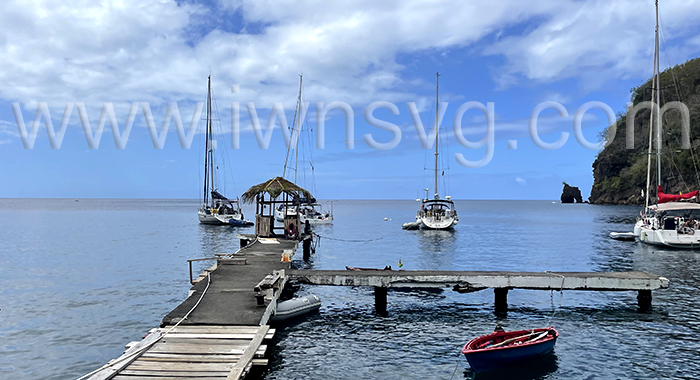The Vincentian economy is expected to grow by 5% this year, the International Monetary Fund said, on Thursday, noting that the outlook is favourable, although subject to large downside risks.
The economic growth is expected to be fuelled by the post-volcanic eruption rebuilding activity, continued recovery in tourism and agriculture, and the start of several large-scale investment projects.
“Growth is projected to strengthen to 6%in 2023 as major projects get into full swing,” the IMF further said in its Concluding Statement of the 2022 Article IV Mission, which took place from Aug. 18 to 31.
The IMF said that higher import prices, in particular those for fuel and food, are projected to push inflation to 5.7% in 2022.
Nevertheless, core inflation is estimated to have remained below 2%, reflecting the still negative output gap.
“Risks to the outlook are tilted to the downside, including from commodity price volatility as a result of a further escalation of the war in Ukraine or supply chain disruptions, sharper-than-expected slowdown in trading partners’ growth, COVID-19 outbreaks, potential delays in investment projects including due to supply chain disruptions, and ever-present threat of natural disasters,” the IMF said.
“On the upside, a faster-than-projected recovery in tourism could improve growth.”
The statement noted that St. Vincent and the Grenadines is recovering from multiple shocks, adding that the government “decisive policy responses—supported by two IMF Rapid Credit Facility (RCF) disbursements and financing from other International Financial Institutions—have helped protect lives and livelihood and contain economic scars.
“The outlook is positive but subject to significant downside risks, primarily from the ever-present threat of natural disasters and intensified spillovers from Russia’s war in Ukraine resulting in higher commodity prices”
It said that government policies need to be calibrated to support a resilient and inclusive recovery, while safeguarding debt sustainability and financial sector stability.
“Near-term priorities are health and reconstruction spending and time-bound targeted fiscal support while maintaining fiscal prudence.”
The IMF said that once the recovery takes hold, fiscal buffers should be rebuilt, including by fully operationalising the fiscal responsibility framework (FRF), to withstand shocks and reinforce fiscal sustainability.
“Continued supply-side reforms to improve productivity and competitiveness and building resilience to natural disasters and climate change remain key for sustainable growth, which is critical to public debt sustainability.”
It said that the COVID-19 pandemic and the 2021 volcanic eruptions, compounded by the impact of the war in Ukraine, highlighted SVG’s vulnerability to external shocks and natural disasters.
GDP is estimated to have increased by 0.5% in 2021, after shrinking by 5.3% in 2020.
“Despite authorities’ strong efforts to mobilise revenue and contain non-priority spending, critical fiscal responses to address the humanitarian and healthcare crises — coupled with weaker economic activity—raised public debt to about 88% of GDP in 2021,” the IMF said.
It said tourism recovery has been slow, with Q1 (January to March 2022) stay-over arrivals reaching 45% of the pre-pandemic levels.
“The war in Ukraine has compounded the 2020-21 shocks through a spike in import prices.”
The IMF said that the fiscal stance embedded in the 2022 budget strikes a balance between the need to support the vulnerable, building resilience, and maintaining fiscal prudence.
“Rising living costs in the environment of limited fiscal space pose difficult trade-offs,” it said, adding that the government has “rightly prioritized spending to provide essential support to reconstruction and economic activity and plan to keep the fiscal relief to cushion the impact of rising living costs temporary”.
It further noted that the government rolled out temporary income support and other targeted programmes to support households heavily affected by the volcanic eruptions.
“This should be accompanied by further efforts to enhance coverage and targeting of social safety nets, including through on-going efforts to digitise beneficiary information and payment system.”
The government also welcomed the government’s “continued commitment” to reaching the regional debt ceiling and the medium-term fiscal strategy set out in the 2021 RCF.
“This includes further strengthening of tax administration, continued containment of wage and other current spending growth while safeguarding critical service delivery, and focusing public investment on reconstruction, resilience building, and essential infrastructure.”
The IMF said that supported by the strategy, the primary balance would improve to a surplus of about 3% of GDP once the large-scale projects are completed in 2026.
“The public debt is projected to peak in 2024 and steadily decline thereafter to fall below 60% of GDP before the regional target date of 2035. Given the elevated macroeconomic uncertainty and high vulnerability to external shocks and natural disasters, the debt trajectory is, however, subject to significant risks.”







I wonder how this will translate to ordinary people?
Bogus
Projections, predictions, cooking the books, add bogus claims to the list. Like someone said before the IMF needs glasses.
Yea right wonder who believe that nonsense no tourism no agriculture and no manufacture where the growth coming from? It’s laugherble.
The pm says there’s a shortage of skilled workers in Vincy..I live in the diaspora and there’s definitely a shortage of skilled workers here. This pm is white collar through and through..still believes lawyers can grow our economy..this is coming from the most intelligent pm in the Caribbean..very sad.